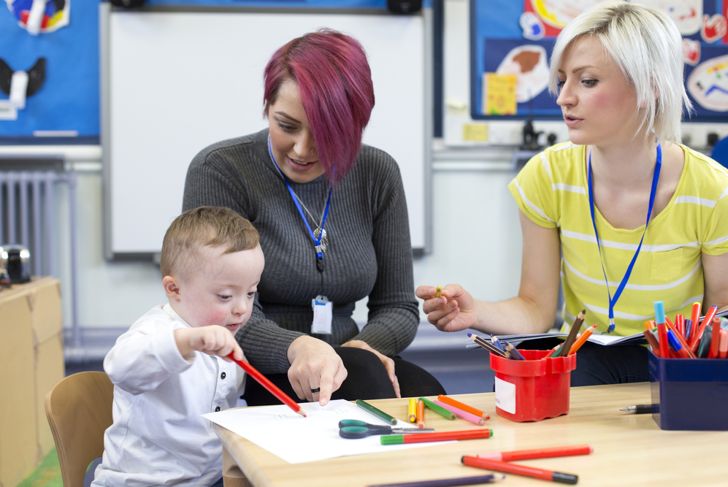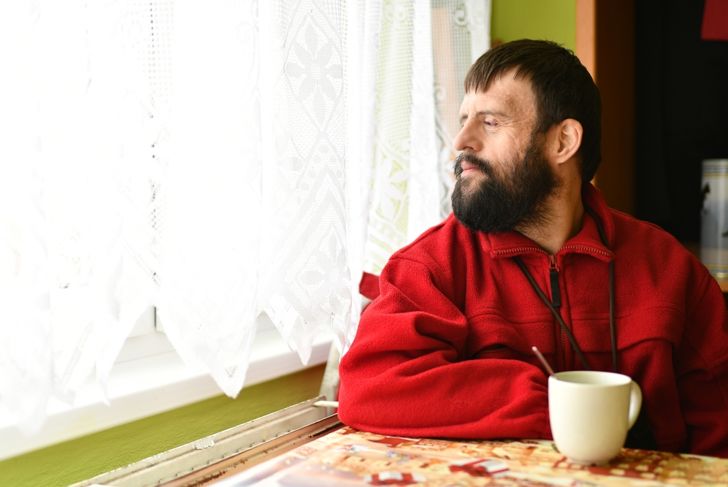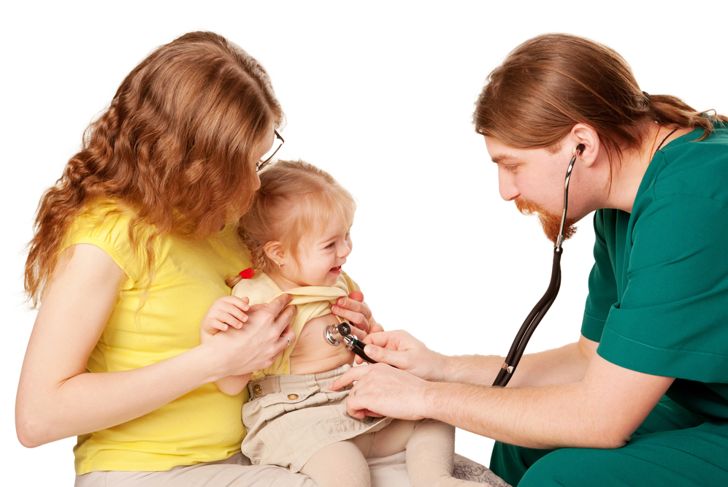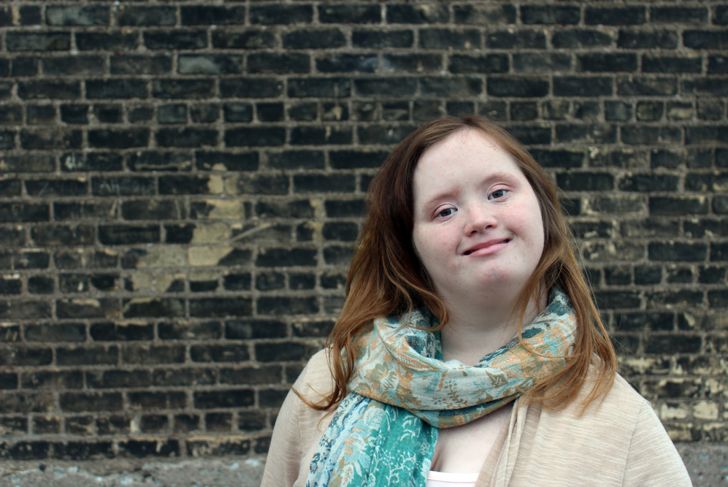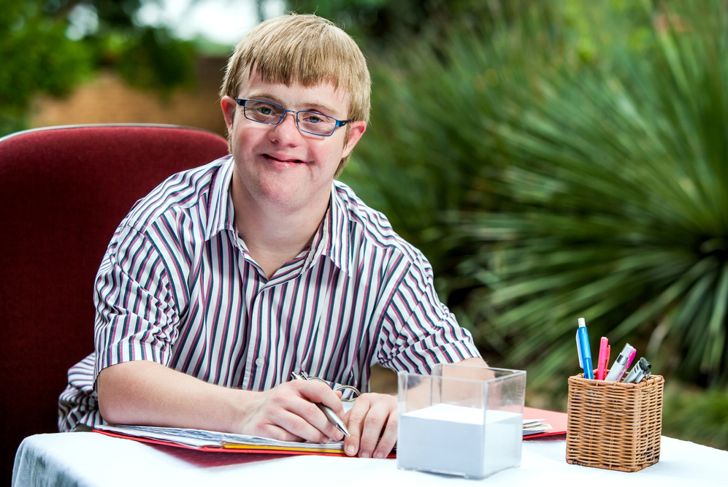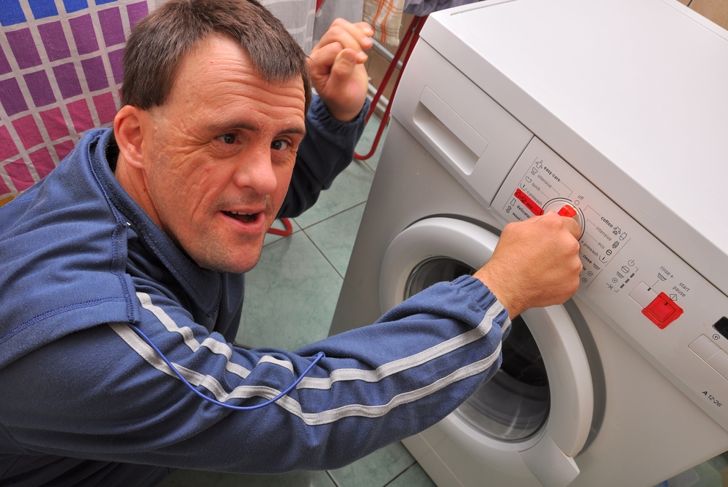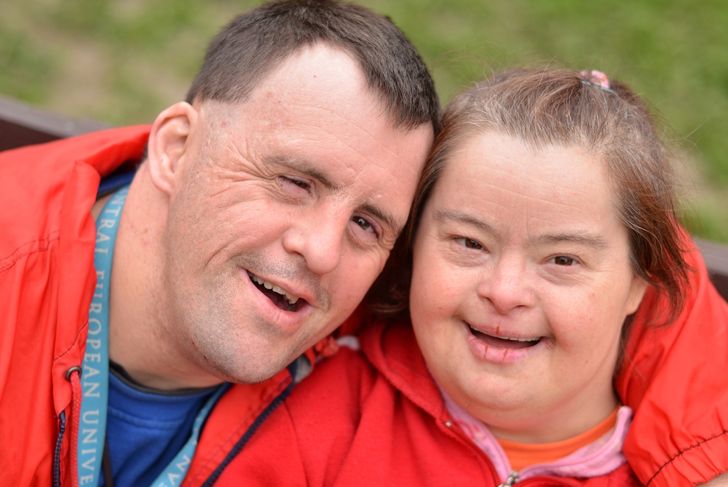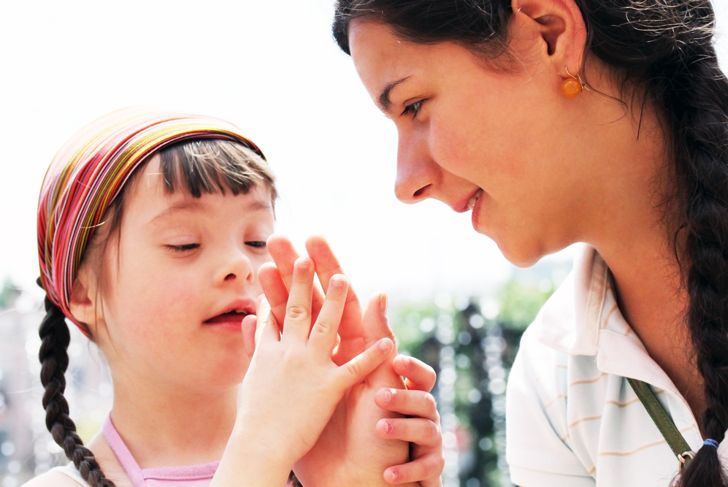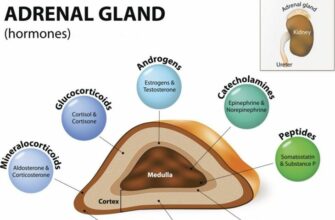Down syndrome is a genetic disorder within the 21st chromosome. When the cells divide abnormally, extra genetic material is formed; instead of a pair, a third part is present. Also known as trisomy 21, the baby will have developmental delays as well as intellectual disabilities and distinctive facial features. Parents who have children with Down syndrome did nothing wrong to have the genetic makeup form in this manner. If your baby is diagnosed with Down syndrome, there are many early intervention programs available including special educators and therapists to help you and your child live with Down syndrome. There are several things to keep in mind if you are raising a child with Down syndrome. Check out these ten helpful tips for living with Down syndrome.
Your Baby Will Look and Act Like You
It is a common misconception that all people with Down syndrome look exactly alike. Your baby will resemble you and your spouse as well as other relatives in your family. Although your baby may have key features of Down syndrome including a lazy eye, you will adore your child in every way from appearance to personality. Although it is important to help your child learn, remember he or she is still little. Finding a balance between play and school is essential. Not every single moment needs to be a teaching opportunity. You will enjoy time with your bundle of joy just being goofy. Don’t forget to let your son or daughter be a kid first and interact with others in the same manner. You did not have a baby with Down syndrome; you had a baby.
Your Child Will Achieve Regular Milestones – It Just Might Take a Little Longer
You should never play the comparison game if you and your friend or sibling had babies around the same time. Although your little one might take a little longer to get there, your son or daughter can grow up to live a seemingly normal life walking and talking with the rest of your family. However, there are several things you can do as a new parent to help your child along the journey. You can show them how to play with toys to encourage movement, talk about interests to promote speech and praise them for being independent with things like eating, dressing, and so on.
Lots of Support is Available
There are a plethora of programs available that can help you support your loved one learn and grow. At all different ages, therapies can help your child reach milestones faster and create great learning skills for the future. For example, motor skills specialist, linguists, and counselors can help with movement and speech along with social and emotional development. Besides support for your child, you can also receive help as a parent. The Down Syndrome Association can help you meet other families like yours. That way, you can engage in conversations about concerns or fears you may have. They can offer advice and other helpful insight. Other social media groups are available if you do not physically live within distance to anyone with Down syndrome.
You’ll Experience a Full Range of Emotions
It is a misconception that people with Down syndrome are always smiling. Your child will not be happy all the time. In fact, living with Down syndrome means you will experience a range of moods including being angry, whiny, sorrowful, and silly, just to name a few. Just like any other person, people with Down’s syndrome could not be happy all of the time; that is inhuman and abnormal. Not only will your son or daughter have a range of emotions, but so will you. As a parent, it is okay to feel guilty or impatient at times. However, when you get frustrated, try to use that emotion as a teaching moment. If something is not working for you two, change it. For example, if you are struggling with speech, try to learn sign language or explore a completely different option that will still deem positive and practical results.
You’ll Visit the Doctor Regularly
People with Down syndrome will need to get regular checkups. When your son or daughter is still little, you will visit a pediatrician or a children’s doctor. A general provider or family physician can continue care as they get older. Nevertheless, each checkup will monitor the health and well-being of your son or daughter with Down syndrome. During each appointment, the doctor will measure height and weight as well as test hearing and vision. Monitoring signs of heart problems is also important along with blood tests to monitor any thyroid issues. If something of concern arises, you will be referred to a specialist.
Your Teen Can Graduate From High School
Living with Down syndrome does not mean your child will be sheltered from regular schooling practices. Your child can attend a public school or mainstream institution like other children his or her age. Although your student may participate in some special education course, he or she can also participate in other activities throughout elementary, junior high, and high school. On the other hand, some parents feel as though specialized teaching and care is more appropriate for their child. It is important to talk to the staff and teachers about the expectations of education to give your son or daughter the best education possible.
An Adult With Down Syndrome May Work
As your child grows into adulthood, he or she may have goals in life including a furthered education. Perhaps your son or daughter will desire to work. With the right help and support, people with Down’s syndrome can get a job. The type of work available depends on the employment details and descriptions, but there are some career opportunities for adults with Down’s syndrome. A social worker can help find the right job placement within the community based on your child’s particular skill set.
An Adult With Down Syndrome May Live Partially Independently
Living conditions outside of a parent’s home might include a staffed housing association. Trained staff and nurses are available to cook, clean, and care for the residents. Depending on the individualized needs of a person with Down syndrome, he or she can use public transportation to get to and from work. A social worker may assist them with other needs including financial guidance, job placement, or suitable housing accommodations. As long as they have enough support throughout the community people with Down syndrome can enjoy adulthood like everybody else.
People With Down’s Syndrome Can Get Married
Just because a person has Down syndrome, does not mean she/he cannot have romantic feelings for someone else. Not only can they fall in love, but they have the same sexual urges as the next person. Although people with Down syndrome can engage in sexual activity, they tend to have lower fertility. Therefore, even though they can have children, it is much more difficult. The chances of having a miscarriage and experiencing a premature birth are very high.
Focus on Life – Not on Labels
Down syndrome will not define your child’s existence. He or she will have good and bad days, some of which have nothing to do with the diagnosis. Although the news may seem overwhelming at first, you will learn to live a seemingly normal, and at times boring, life full of smiles and tears. A lot of happy and sad moments throughout your journey on earth will have nothing to do with your child’s chromosome pattern, doctor’s appointments, or speech therapies. Enjoy being a parent and you will experience the highs and lows of life.

 Home
Home Health
Health Diet & Nutrition
Diet & Nutrition Living Well
Living Well More
More

